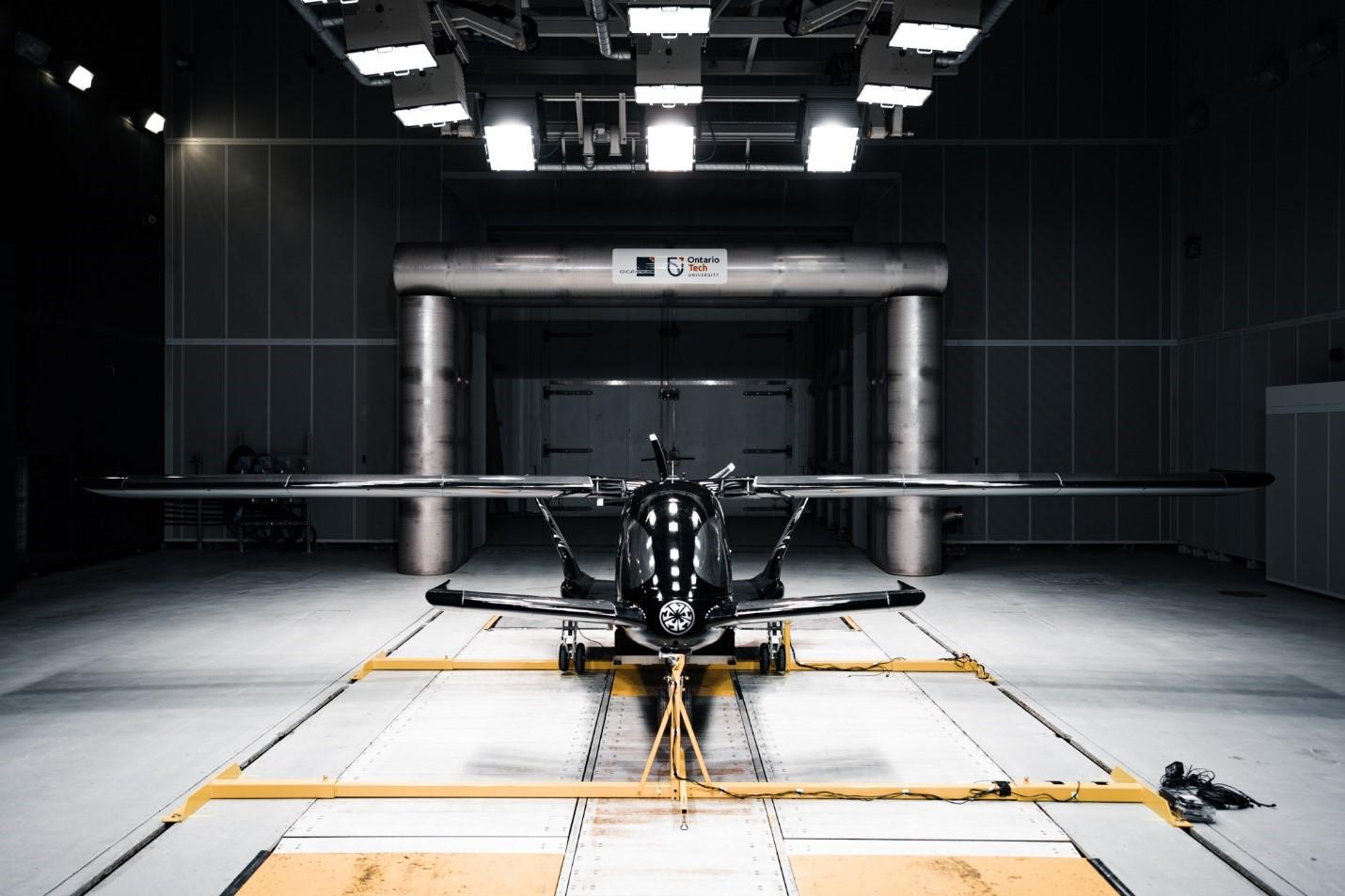
A 50%-scale model of the Cavorite has been hovered and tested in the wind tunnel.
Canadian startup Horizon Aircraft plans to list publicly through a merger with a Hawaii-based blank-check company as it seeks to raise funds to develop a hybrid-electric vertical-takeoff-and-landing (VTOL) aircraft.
Founded in 2015, Toronto-based Horizon plans to list on the Nasdaq stock exchange through a merger with special purpose acquisition company (SPAC) Pono Capital Three. The transaction is expected to close in the third quarter.
Pono Capital Three is sponsored by Mehana Capital, a company formed to create and list SPACs. Mehana previously sponsored Pono Capital, a SPAC that merged with advanced air mobility (AAM) company Aerwins in February to list on the Nasdaq.
Horizon is developing the Cavorite, a hybrid-electric VTOL aircraft with fan-in-wing propulsion for vertical flight and a pusher propeller for cruise. A 50%-scale model built by the startup has conducted hover flights and wind tunnel tests.
The startup was previously developing a piloted four-passenger aircraft, the Cavorite X5, but has shifted to a seven-seat version, the X7, with the same 500-km (310-mi.) range but a higher 450-kph (280-mph) cruise speed. Horizon is aiming for certification by 2027.
In June 2021, Horizon was acquired by Astro Aerospace, a U.S. eVTOL startup that traded publicly on a financial market for over-the-counter securities. But in August 2022, Astro agreed to sell 100% of the equity of Horizon back to its original shareholders.
The newly announced SPAC merger values Horizon at $96 million, which is expected to result in a combined pro forma equity value of about $216 million before expenses, assuming no redemptions by SPAC shareholders. The merged company is to be based in British Columbia.
But the merger is planned at a time when SPAC transactions are not faring well in AAM and other technology markets. Shareholder redemption rates are high, slashing the funding raised, and share prices have tumbled following the public listings.
The merger with Pono Capital valued hoverbike manufacturer Aerwins at $600 million but netted only $1.6 million from SPAC shareholders plus $5 million from other investors, and the share price has plummeted to $0.21 from a peak of almost $16 immediately following the February listing.
Even the well-capitalized eVTOL startups such as Joby Aviation and Archer Aviation that raised billions of dollars at the peak of the AAM SPAC craze in 2021 have seen their shares dip well below their starting prices. Across multiple sectors, private equity has become hard to find.
Most recently, companies have looked for alternatives to SPACs and traditional initial public offerings to raise funds. Surf Air Mobility, which plans to electrify regional aviation, abandoned plans for a SPAC merger and instead completed a direct listing on the New York Stock Exchange at the end of July. But its share price quickly fell from $5 to below $1.50.
